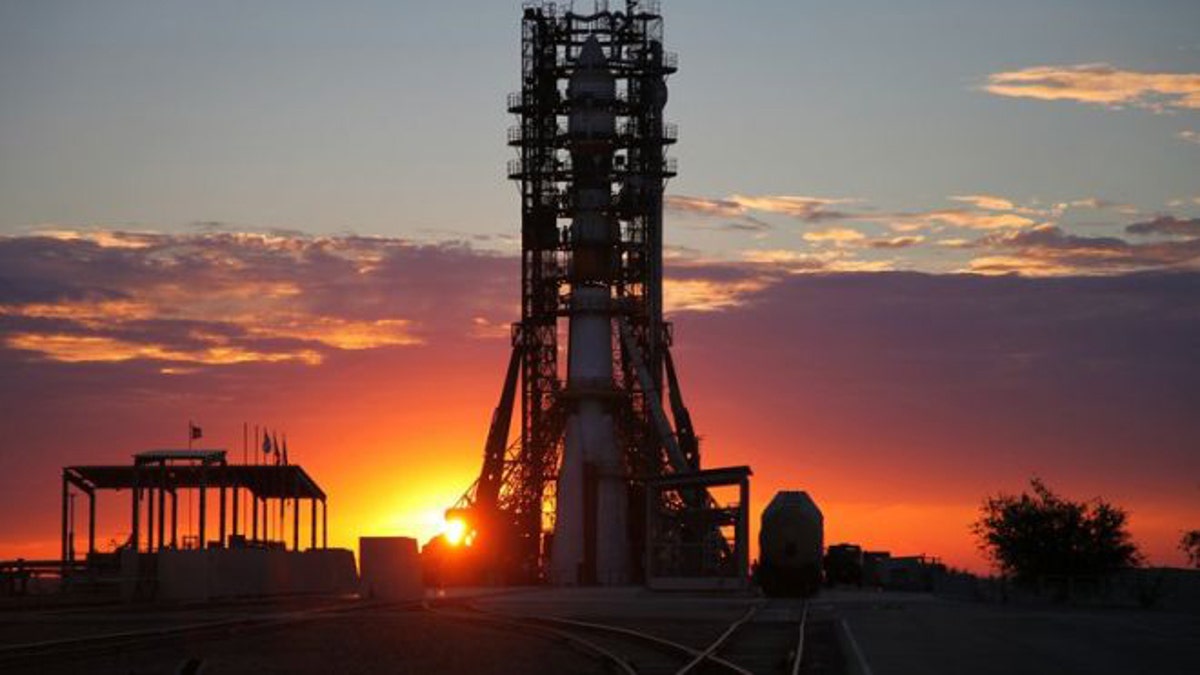
A Soyuz rocket -- the only way NASA can at present send men to the International Space Station -- on its launch pad at Baikonur cosmodrome on June 25 , 2013. (AFP)
The political crisis in Crimea comes at a touchy time in the joint Russian-U.S. space program. Two cosmonauts, one of them from Crimea, and an American astronaut are scheduled to touch down on Russian soil on March 10 after months aboard the International Space Station.
One American and two cosmonauts are headed back into space in a few weeks. In a teleconference with reporters Tuesday, NASA Administrator Charles Bolden said there are no problems. "Everything is nominal right now in our relationship with the Russians, " he said.
But since the retirement of the American space shuttle program, the U.S. relies entirely on Russia for human transport to and from the International Space Station and pays $70 million for every astronaut trip.
House Science Committee Chairman Lamar Smith, R-Texas, said in a statement on Tuesday that the U.S. should have its own launch capabilities so NASA doesn’t have to rely on Russia's space program.
"With the retirement of the Space Shuttle, America currently has no domestic capability to transport our astronauts to and from the International Space Station," he said. "Our international space partnerships, including our partnership with Russia, are strong and have historically endured political division. But after decades of leadership in space, it is unacceptable for America to pay the Russians $70 million per seat for each of our astronauts to hitch a ride to space. NASA needs to develop a vehicle to launch American astronauts onboard American rockets from American soil. Leadership in space exploration is a goal worthy of a great nation."
Former astronaut Tom Jones says that NASA is intent on keeping ISS missions from becoming a political football.He points to the Apollo/Soyuz missions of the mid-70s, during the height of the Cold War, as evidence that the two countries cooperated in a spirit of detente.
Today, Jones says, the two space partners are more inter-dependent than ever. "What they lack for example, is all the control software that we use to point, maneuver and control the space station," he says. "So, they would not be wise to deny us access, because they would be denying themselves access to all the utilities and supplies they need for the space station."
Russians have an agreement with the U.S. that they are allowed to keep a gun in their possession on space missions.
Russian spacecraft have traditionally touched down on land. In the early space days, some cosmonauts occasionally had to fend off wolves while they awaited rescue crews.



